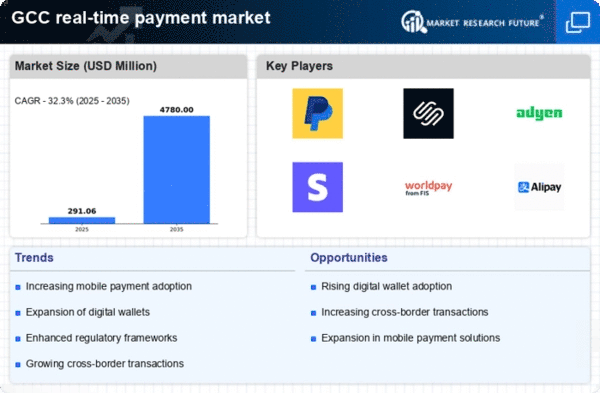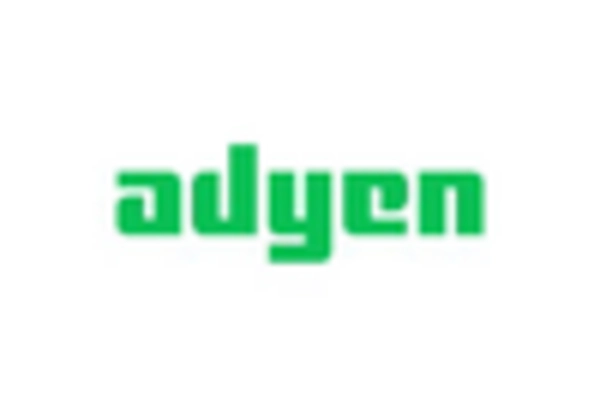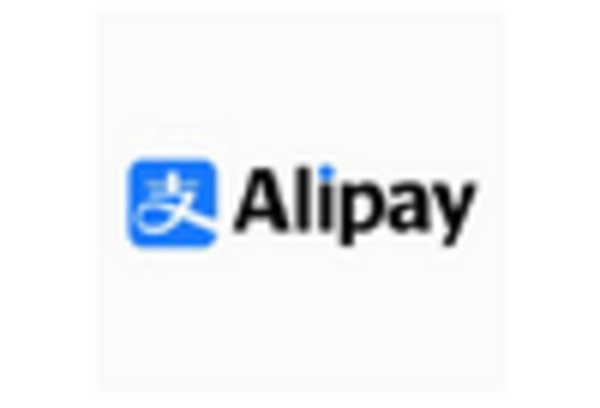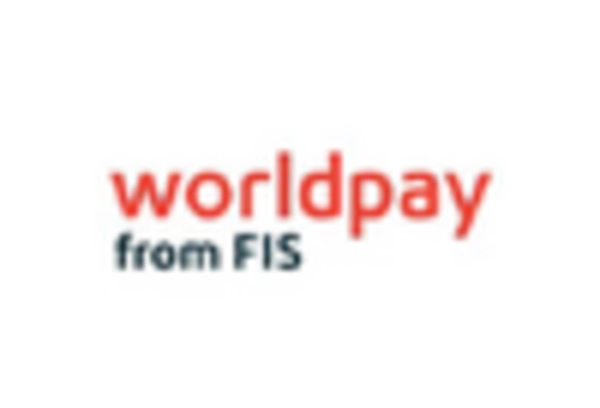Integration of Financial Technologies
The integration of financial technologies, or fintech, is reshaping the landscape of the real time-payment market in the GCC. Fintech companies are introducing innovative solutions that enhance payment processing capabilities, making transactions faster and more efficient. The collaboration between traditional banks and fintech startups is fostering a competitive environment that benefits consumers. For instance, partnerships are emerging to develop mobile wallets and peer-to-peer payment platforms, which are gaining traction among younger demographics. It is estimated that the fintech sector in the GCC will grow by 25% annually, further propelling the real time-payment market. This integration not only improves service delivery but also encourages financial literacy and inclusion, as more individuals gain access to digital payment solutions.
Increased Focus on Cross-Border Transactions
The real time-payment market is witnessing an increased focus on cross-border transactions, driven by globalization and the need for seamless international trade. Businesses in the GCC are seeking efficient payment solutions that facilitate quick and cost-effective cross-border transactions. The implementation of real time-payment systems is expected to reduce transaction times from days to mere seconds, enhancing trade efficiency. Reports suggest that cross-border payment volumes in the region could reach $50 billion by 2026, highlighting the growing demand for such services. This trend is likely to encourage financial institutions to invest in technologies that support real time cross-border payments, thereby expanding their service offerings. As a result, the real time-payment market is set to benefit from this increased focus, fostering economic growth and international collaboration.
Technological Advancements in Payment Systems
The real-time payment market is experiencing a surge in technological advancements that enhance transaction efficiency and security. Innovations such as blockchain technology and artificial intelligence are being integrated into payment systems, facilitating faster and more secure transactions. In the GCC, the adoption of these technologies is projected to increase transaction speeds by up to 50%, thereby improving user experience. Furthermore, the implementation of biometric authentication methods is likely to bolster security measures, addressing consumer concerns regarding fraud. As a result, the real time-payment market is expected to expand significantly, with a projected growth rate of 20% annually over the next five years. This technological evolution not only streamlines payment processes but also fosters consumer trust, which is crucial for market growth.
Rising Consumer Demand for Instant Transactions
Consumer behavior in the GCC is shifting towards a preference for instant transactions, driving the growth of the real time-payment market. With the increasing reliance on digital services, consumers are seeking immediate payment solutions for their everyday transactions. Surveys indicate that approximately 70% of consumers in the region prefer payment methods that offer real-time processing. This demand is further fueled by the rise of e-commerce and mobile shopping, where instant payment confirmation is essential for customer satisfaction. As businesses adapt to these changing consumer expectations, the real time-payment market is likely to see a substantial increase in transaction volumes, potentially reaching $100 billion by 2027. This trend underscores the necessity for financial institutions to innovate and provide seamless payment solutions.
Government Initiatives to Promote Digital Payments
Governments in the GCC are actively promoting digital payment solutions to enhance financial inclusion and economic growth. Initiatives such as the National Payment Systems Strategy aim to modernize payment infrastructures and encourage the adoption of real time-payment systems. By 2025, it is anticipated that 80% of all transactions in the region will be conducted digitally, reflecting a significant shift in consumer behavior. These government-led efforts not only facilitate easier access to financial services but also stimulate competition among payment service providers. As a result, the real time-payment market is poised for robust growth, with an expected increase in market penetration of 30% over the next few years. This proactive approach by governments is likely to create a conducive environment for innovation and investment in the payment sector.

















